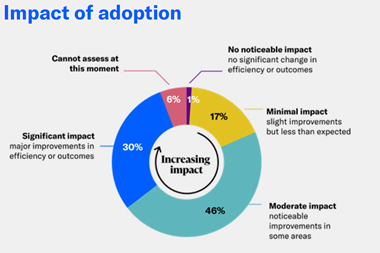Governments worldwide are planning drastic changes to the regulatory landscape, these include new duties for directors and better risk management. Neil Hodge investigates whether all the new regulation be a good or bad thing
Regulators around the globe have largely reached the same conclusions as one another in their efforts to address the weakness of financial regulation and corporate governance. Within various reviews, watchdogs have said that there needs to be more boardroom discussion about risk, greater disclosure about corporate strategy and director remuneration, and a renewed effort to promote diversity in the boardroom. Regulators also want investors to step up to the plate, ask more questions, cast votes against policies that contravene best practice, and disclose what engagement they have with investee companies.
“Regulation has moved back towards being over burdensome,” says David Kenmir, director in the financial services regulatory practice at PricewaterhouseCoopers (PwC). “But who is to say that in a few years time it won’t revert back to being light touch,” he adds.
At the moment, that prospect seems light years away as various reviews begin. The European Commission – the European Union’s executive body – is planning a potentially wide-ranging overhaul of both financial regulation and corporate governance. On 2 June it launched a Green Paper which floats a series of potential governance reforms, including new duties for directors, better risk reporting, and a wider remit for external auditors. The Commission has said it will soon launch a broader review of corporate governance within listed companies in general, as well as examine the role of the board and investors.
Many of the world’s leading financial markets, however, have already taken steps to beef up regulation and toughen up enforcement. So far, the most encompassing reform effort has been in the US.
America
Since this February the US Securities and Exchange Commission (SEC), the country’s financial watchdog, has required companies to disclose the relationship of a company's compensation policies and practices to risk management, what the board’s role is in overseeing risk, the background and qualifications of directors and nominees, and how the company tries to achieve “diversity” in the boardroom.
But it is the Dodd-Frank Wall Street Reform and Consumer Protection Act (see box) that has heralded the most sweeping overhaul of the US financial system since the 1930s. According to law firm Davis Polk, the legislation requires that regulators create 243 new rules, conduct 67 studies, and issue 22 periodic reports – a reality that does not appeal to most directors, particularly those in the UK where “principles” trump “rules” every time.
Matthew Kerfoot, counsel in law firm Dechert’s financial services practice in New York, says that “the new legislation may provide for the necessary groundwork for the establishment of a more transparent, more robust and more reliable US financial system.”
Britain
The UK has also taken a tough line in taking more control – the days of “light touch” regulation rapidly looking like a distant memory. In May, following the Walker Review which found that bank directors needed to get a much firmer grip on risk management, the Financial Reporting Council (FRC), the UK’s corporate governance regulator, introduced changes to the Corporate Governance Code (see box) – formerly known as the Combined Code – to improve board effectiveness and increase accountability in the UK’s largest companies.
The UK is also planning to overhaul the country’s system of oversight. In July the UK government released a consultation paper called “A new approach to financial regulation: judgment, focus and stability”, which states that it is planning to create a new super-regulator to set and enforce financial reporting rules, corporate governance standards, and securities regulations for listed companies, scrapping the FRC and City watchdog the Financial Services Authority (FSA). It is not yet clear what will take their place.
Governance experts in the UK favour the regulator’s decision to retain its “comply or explain” approach to corporate governance. However, Selina Sagayam, partner in the international corporate team at law firm Gibson Dunn & Crutcher, says that this approach has to be combined with greater and more responsible shareholder engagement. “Investors need to be more challenging about boardroom strategy and governance. How companies run themselves can no longer just be left to regulators to determine whether they have complied or not,” she says.
But Danielle Harris, professional support lawyer at commercial law firm Maclay Murray & Spens, says that greater investor engagement should not be a substitute for effective regulation. “While long-term investors have an obvious interest in promoting better risk management and corporate governance in the companies they invest in, are they really the best people to ask an opinion about board remuneration, for example, when they too are being paid large salaries? Also, short-term investors are not necessarily going to be interested in engaging with boards about strategies that might not pay off for years. For them, taking on more risk to get greater rewards might be the most appropriate course of action.”
Others also believe that the new rules may hamper corporate governance rather than enhance it. For example, the increase in rules, regulations and principles on directors’ duties worldwide may make it more difficult to appoint people to those positions, particularly non-executive directors, say some. Simon Garrett, director in the UK executive compensation practice at Hay Group, a HR consultancy, says that “over the past few years the responsibilities of directors have become more explicit rather than implicit and that is likely to deter people from taking on the role. Why would anyone want to put themselves up to such scrutiny and increased liability? A non-executive’s career can be effectively over if they are linked to a governance failure, so what incentive is there for them to come forward when remuneration is relatively low, increasing it is a contentious issue, and their personal and professional reputation is at stake?”
Hampering competition
Such views have been backed by recent findings. In a survey released by PwC at the beginning of the year, over a quarter (27%) of big-company chief executives around the world said they are “extremely concerned” about over-regulation, saying that excessive regulation was the biggest threat to their business growth.
And the majority felt that governments had done nothing to reduce the compliance burden they faced. In a separate PwC report, called Integrated reporting: What does your reporting say about you?, the firm found that most FTSE 350 companies are failing to provide sufficient information about their activities and are simply ticking boxes to meet regulatory requirements.
But Sagayam says that the current emphasis on the role and responsibilities of directors does not actually translate into any more onerous obligations being put upon them. “Directors have always been the people who are in charge of a company and are legally liable for any corporate failings. The current raft of governance reforms all over the world does not change that,” she says.
Spreading the blame
Some experts question why all companies are being targeted under corporate governance reviews, when the financial crisis was caused by – and largely limited to – financial services firms. As Clive Cunningham, partner and head of the financial services regulatory practice in the UK for city law firm Taylor Wessing, says. “It does appear that regulators have taken a sledgehammer to crack a nut. Why are they reviewing corporate governance in all organisations rather than just focussing on banks? In the vast majority of cases, companies have been following best practice and investors have acted appropriately. There may be a case for saying that these reviews need to be more focussed.”
Yet it is not just the increased “burden” of regulation that is giving directors a headache. Enforcement action (see box) is also backing up strong words. In May the European Commission reached its first cartel-busting settlement against ten memory-chip manufacturers under “fast track” procedures introduced two years earlier. In March, for the first time in its history, the FSA, the UK’s City regulator, arranged the extradition of a suspect for insider-dealing.
Such proactive enforcement and harsh penalties are making directors very nervous about their potential liabilities, and whether their directors & officers (D&O) insurance policies provide the necessary cover. According to StrategicRISK’s recent research carried out with ACE, the broker, over half (52%) of directors surveyed had recently reviewed their D&O policies to ensure they had adequate protection.
Craig Carpenter, practising lawyer at information risk specialist Recommind, says that as it is becoming apparent that the “regulatory pendulum” continues to clearly swing in the direction of “more and stronger”, companies need to rethink what information they are likely to need to disclose in future.
“Today’s regulators are required to take action before problems occur by seeking to deal with issues of fraud and internal mis-management of information at their inception,” says Carpenter. “This means that it is extremely likely that companies will be obliged to report on everything and provide complete transparency to regulators in the future. Information that was previously never disclosed to regulators will need to be available and the required timeframes for providing such information will become days or weeks, rather than months.
“These changes – and the expedited response timelines they will bring – mean that regulators will be required to sit inside companies in many cases. It is therefore important for businesses to take a proactive attitude towards complete transparency now to satisfy increasing regulatory pressures, as this will inevitably help mitigate any financial or reputational fallout that could arise further down the line should problems occur,” he says.



















